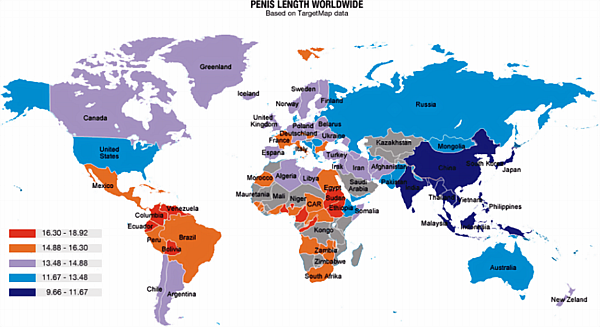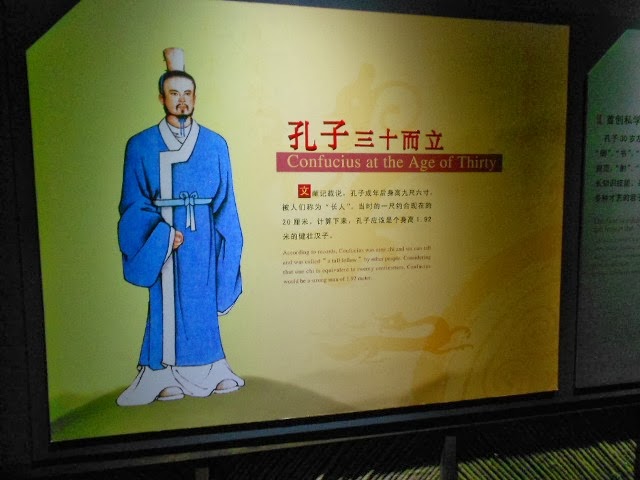in honor of the modernists
"All I ever did was shoot a deputy down..."
What follows is a boring story which I shall do my very best to relate with wit and color so that you might be motivated to read it all the way through. Franz Kafka's
The Trial is a story of a fictitious man arrested and prosecuted for some crime unknown to him (or the omniscient narrator), although I imagine some number of that book's readers have concluded that they know what felonious act was committed, human nature being so accustomed to jumping to conclusions. Sadly, this current author knows of no germane crime whose revelation or careful shrouding would add intrigue to the following tale. Rather, this is the story of law-abiding and rather boring characters (aka crashing bores), excluding this writer only by virtue of his high self-opinion.
This epic parable (if such an oxymoron might be permitted) concerns huge bureaucracies and a large number of forms and documents, stamps and signatures, clerical errors and some mismanagement, as well as the
de facto monopoly of the US government on American notarial acts performed in the People's Republic of China..
Before we begin this story, let me establish some simple facts. To work in China as a foreign expert, one must obtain a foreign expert's certificate. As you might have assumed, there is a gargantuan bureau responsible for putting its imprimatur upon any applicant's expertise and suitability. As you might also have presumed, the implementation of rules and regulations varies tremendously from district to district. Still, all across the land, there is now supposed to be, in the packet of information presented to these officials, a statement of no criminal record. This particular regulation came into force some time around July 1, 2013, following a pedophilia scandal in the prior year. No clear guidance has been offered to employers about what sort of certificate will suffice to convince the Chinese bureaucracy of one's innocence before the law. It does not apply only to teachers and others who work with children, but also to the magnates of international conglomerates and the legions of consultants who come proffering their expertise to Chinese firms and its sprawling government. If thou hast a work permit then some record of thy criminal history or lack thereof must be enshrined in some folder in the ministry. If once you got sentenced for smoking marijuana and you work for an investment bank, the PRC Public Security Board (PSB) wants to know.
In Beijing there is an American embassy, as one would expect in the capital of a major recognized and friendly power. Part of that embassy is a consulate within which is housed American Citizen Services. They offer notarial services--each signature costing US$50 (the price is the same the world over). In order to make an appointment with the foreign service officers therein, one must visit a website and register at a time when the US government is open for business, which is not always the case in this Tea Partying age or ever the case on Wednesday afternoon and weekends. The expectation is that you will arrive
half an hour in advance of your appointment. The contracted Chinese company whose job it is protect these important legates and their staff from an invasion will not let you into the building until
fifteen minutes prior to your scheduled appointment even if particulate matter blackens the heavens and the waiting room is nearly vacant, as was the case on the day of my visit. You must appear bearing your passport and a copy of the appointment form printed from the aforementioned registration website.
In the United States there are fifty states and a number of districts and territories. Each has its own distinct set of laws related to the provision of notarial acts and to the provision of a statement of no criminal record or criminal background report. In Michigan, you just get pointed to a website. In the state of New Hampshire, where I last resided, the Department of Safety's Criminal Records Repository does not require, as some states do, a requesting party to appear in person. One may, instead, submit a notarized form that seeks to have the record (or proof of no record) mailed to you, your employer or some other appropriate party.
In New Hampshire, there is also the longest serving secretary of state in United States history...who happens to be a friend of mine. His office is responsible for licensing various trades and professions, notably and relevantly notaries public, justice of the peace, and commissioners of deeds. A commissioner of deeds is permitted to carry out the same duties as a notary, but outside of state borders, whereas a notary public is restricted to performing his office inside of the state. In New Hampshire, the law allows notarial acts to be performed outside of state borders by commissioners of deeds, but neither notaries nor commissioners of deeds can charge more than US$10 for a signature.
Now, with these facts established, let us commence the telling of this story. By August 15, my paperwork to transfer my foreign expert certificate was all completed save for the requirement of obtaining a record of no criminal history. August 15 was also, technically, my last day of work for my former employer, though they continued to keep my sizable bonus hostage until after this transfer of paperwork debacle was concluded. Keeping money earned by a former employee until documents are cancelled is a novel concept that they decided to try out on me even in the face of my increasingly angry protestations. (It is also worth noting that August 22 might have been my last day if they had consented to pay me for earned vacation, but that is not their habit, sadly.)
In early August, I went to the US Embassy ("This is is the worst run embassy and I have worked in 43 countries," said the man behind me in line) and obtained notarization of my signature requesting that the State of NH send legal proof of no criminal record to my new employer. This was mailed off by my current employer with a courier service in a timely fashion and the form was stamped on August 16. Either the failure of the state to mail it abroad in the SASE, the lack of an SASE, the unreliability of the mail, or malfeasance on the part of the courier company meant that this single sheet of paper was not returned. In the ensuing two months, the patient clerk who works for the State of New Hampshire dispensing criminal records (sometimes to real criminals!), spoke with me several times, eventually getting special dispensation to fax it, which also failed twice. Faxing is complicated by the fact that our working hours here and theirs in NH never coincide. Ultimately, she received permission to email me a PDF, which I printed and gave to Human Resources (HR). Success!?
Not quite. HR called the Public Security Bureau (PSB) Foreign Affairs Department to make sure that they would accept a facsimile of the original. They said they would not, so we dispatched the courier company again and waited for the original. The original at long last in hand, HR brought the packet of information to the bureau. Rejected! Why? First of all, I was told I would need a statement of no criminal record from Changchun, where I had most immediately lived for two and a half years. (In the end, this turned out not to be true despite my former company having gone, in the interim, to quite some trouble to obtain it.) Second of all, the Chinese bureaucrats have no way of knowing if the blue and red stamp on the printed copy of the form filled out with pen by me was truly and legitimately the original from New Hampshire. They suggested I go to my consulate and get them to certify it as such. This is not a service that American Citizen Services (ACS) offers. Instead, they will affix their signature and seal, the date and printed name of the signing consular associate on an affidavit in which I can swear that the copy (a copy of the original document) of the attached document(s) are real, but which excuses the embassy of any liability if I am perjuring myself. They attached two documents, my fancy NH Commissioner of Deeds certificate signed by her Excellency Maggie Hassan and the criminal record form, and they did so with a very fancy irremovable grommet instead of a staple. Rosie the Riveter would have beamed at their handiwork.
In the lively, cordial, fascinating conversation with the consular associate, she neglected to sign and seal the affidavit--a detail to which we shall return. She did, however, on my first visit suggest that I meet with the Deputy Consul to speak generally and at greater length about my concerns, giving me a number to call to set up an appointment. She also, in a helpful gesture, pushed through the gap underneath the plate-glass window a flow-chart that ACS has developed to assist foreign experts who must now wade through this process. It was at this point it came to my attention that some people had merely appeared at the embassy with a handwritten statement averring that they had no criminal record. In turn, the embassy affixes an affidavit to these statements. It is unclear to me on what grounds they can or have ever denied somebody a signature on such an affidavit. The consular associate also explained that the real criminals probably go through an agency and get this paperwork handled by an agent. She never even needs to look the next criminal in the face.
I took her advice and made the appointment with the Deputy Consul after having sent them a letter, which said, in relevant part:
The subject to be discussed is whether the Chinese government will allow US citizens outside of the US Embassy to act as notarial officers.
I have reviewed the information at http://www.passportsusa.com/law/info/info_630.html (non-official, but the best info I could find on the subject) and http://www.state.gov/documents/organization/86732.pdf, but there is no nation-specific information about relevant treaties, applicable Federal law and regulations, or the laws of China that govern.
I think it is not proper that US government maintain a monopoly on this service and charge five times ($50) the statutory limit in my state ($10) for providing a notarized signature. Furthermore, it is an added burden (and unfair, in my opinion) to Chinese and joint venture employers who must pay their staff to take the better part of half a workday to wait in lines, go through security, register and wait again after they may have had to wait several days for the next available appointment, as well.
The reason that I went to the trouble of getting sworn in as a Commissioner of Deeds (who can perform notarial acts outside of state borders for New Hampshire citizens) and tracking down a judge to get sworn is was precisely to work with the hundreds of foreign teachers who, according to a new law that went into effect in July, will need to obtain a criminal background check. I would like to offer this service to them at a nominal cost.
On a different but not unrelated note, unfortunately, I have heard that individuals have offered handwritten affidavits stating, "I have no criminal record" and the Chinese government has accepted this. This renders the system meaningless, allowing any pedophile or other dangerous criminal to simply perjure himself. That the Chinese government went so far as to pass a law of this sort is laudable. Properly carried out, it should offer protection not dissimilar from what we require of teachers at home in the USA. It is in the best of the interest of the United States and reputation of our foreign experts here to ensure that this protection is in place in a functionally viable manner so that we do not have an embarrassing scandal with a foreign expert who has manipulated the system.
If the conversation between our two governments on this subject has not commenced, I suggest that the time is ripe. If this email does not suffice to convince you, I should very much like to have an opportunity to meet you in person and further plead the case on behalf of the thousands of Americans in Beijing and China who may want convenient, affordable notarial services. In any case, I would like an answer about whether I can act as a notary. I am willing to appear in person if you request or so require.
I have courtesy copied the NH Secretary of State who prompted me to become a Commissioner of Deeds so that I might notarize criminal background checks. I am also copying the relevant person at my current and former employers in China so that they can be apprised of the information herein.
When I heard back that they would be happy to see me, I sent a short follow-up note, which, in relevant part, stated:
I noticed that the Affidavit that you dated and stamped with your name and position did not have a signature or a seal per se. I assume that is the way you do these things normally and that the Chinese government will accept it as you returned it to me, but if this was something you overlooked and we can perfect the document further, please let me know so that I can bring it with me. I suspect that the Chinese bureaucrats who review these things will be looking for a signature where it says signature and a seal where it says seal. To re-purpose President Gerald Ford's most famous utterance, I am ready for this long international nightmare to come to a swift conclusion.
Unfortunately, on the day I arrived for the appointment nobody had read between the lines in the first letter or read my plain and simple English in the second epistle. The first order of business in the meeting with the deputy consul was the pushing of some more documents through the slot beneath the plate-glass window, clearly there to protect the deputy from my growing sense of irritation. In these documents was a copy of the Chinese notary law that was conclusive and would have, had somebody read my letter with some semblance of care, precluded the need for an in person meeting. It states, among many other requirements, that all people doing notarial acts in China must be Chinese nationals. In our discussion, I explained that I was well acquainted with both congresswomen from my state of last voter registration and one of my senators, but was told meekly that if they received a letter of inquiry from a congressional office, they would probably recommend that the Chinese government not clarify the law as past experience has shown that such requests lead to more hurdles, not a simplification of the process in question. "I am not surprised," I chortled. "Red tape," I muttered, conscious of the double entendre.
As the conversation wound down, the deputy offhandedly reminded me that he had heard that my correspondence had mentioned something about the affidavit lacking both signature and seal. He informed me that, if indeed I was correct about the document, the associate had made a mistake by not signing and sealing. His implication that I might be mistaken about the document's state of imperfection again reminded me of the purpose of the plate glass window.
As it was in the possession of my HR department, I did not have it with me. Yet another (fourth) visit would be needed. In true fact, the plate glass window was not necessary and I maintained utter composure throughout the conversation, perhaps even leaving him with the feeling that I was a satisfied customer. Alas, though I made a number of quips about the terrible position that they must daily find themselves in with regards to placating some of our angry, self-entitled fellow citizens--the ones who make more specie being disproportionately shorter of patience--I was not at all content with the defeatist Catch-22 that he laid out for me. The government was unlikely to raise the draconian consequences of China's isolationist notarial law in bilateral conversations (admittedly a high hope), to look upon or respond favorably to a Congressional inquiry about why they had not sought further clarification of the new criminal record regulation, or to do anything whatsoever to enable me to establish a thriving side business as a notary. To add insult to injury, in addition to telling me nothing I wanted to hear, they had negligently fulfilled their notarial duties. How, really, could I be expected to be satisfied?
In the ensuing weeks, I have scribbled letters to the largest US NGO concerned with sexual crimes and to the national association of notaries public in the US. A response from these institutions is still wanting. They should, respectively, in my opinion, be concerned that there is a loophole in the Chinese criminal record regulation large enough for Jean-Claude Van Damme to guide two Volvo trucks through and be concerned for their clientele that nobody can notarize in China except consular officers. Out of respect for the hardworking consular officers in the "worst US embassy in the world", I have not written to anybody elected to Congress. Sadly, so far, I am left jousting at this windmill alone, left flapping in the breeze by my government. Woe is me. Josef K. and Joseph Heller, what am I to do?










































